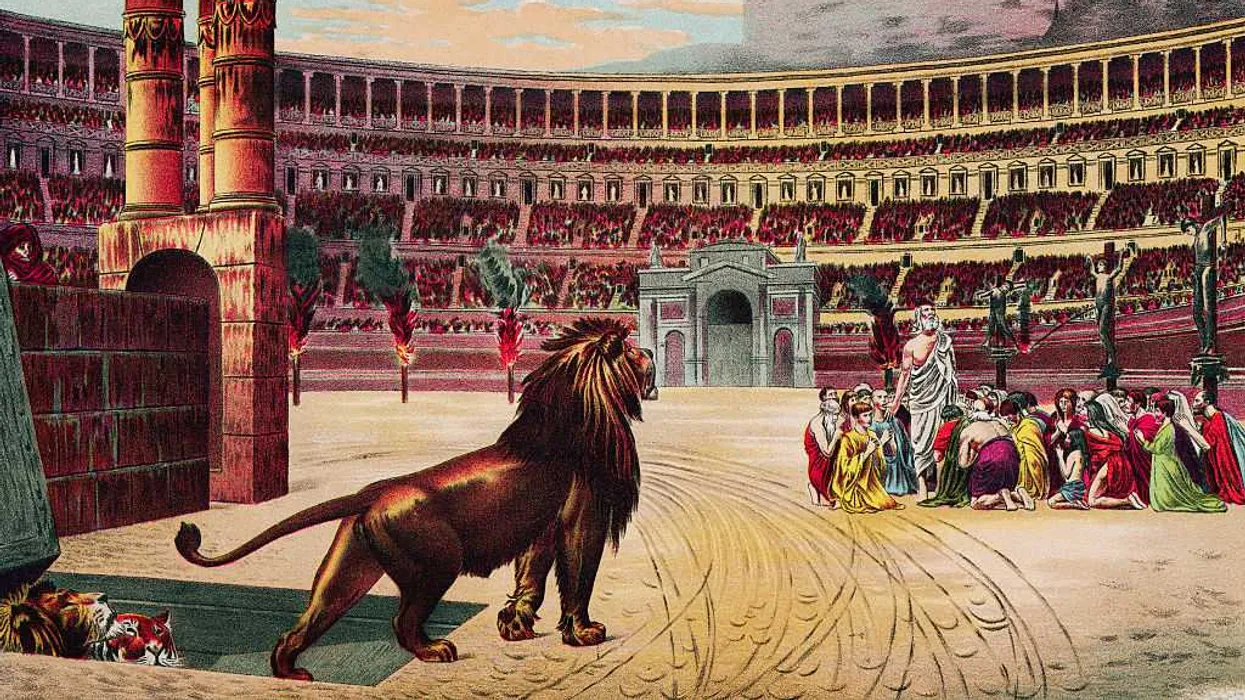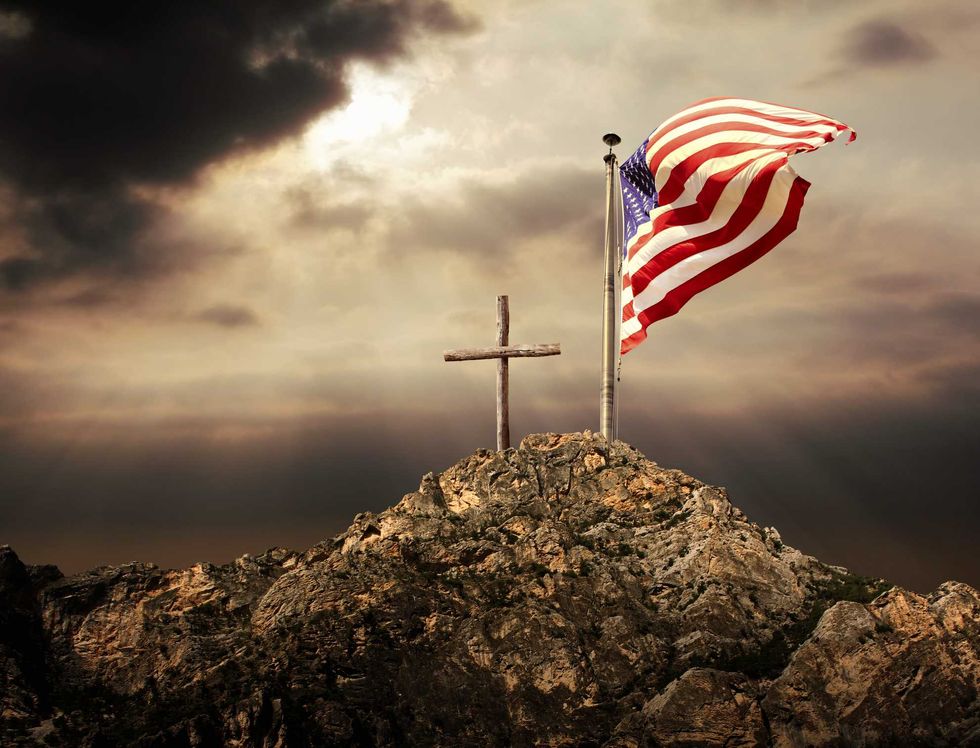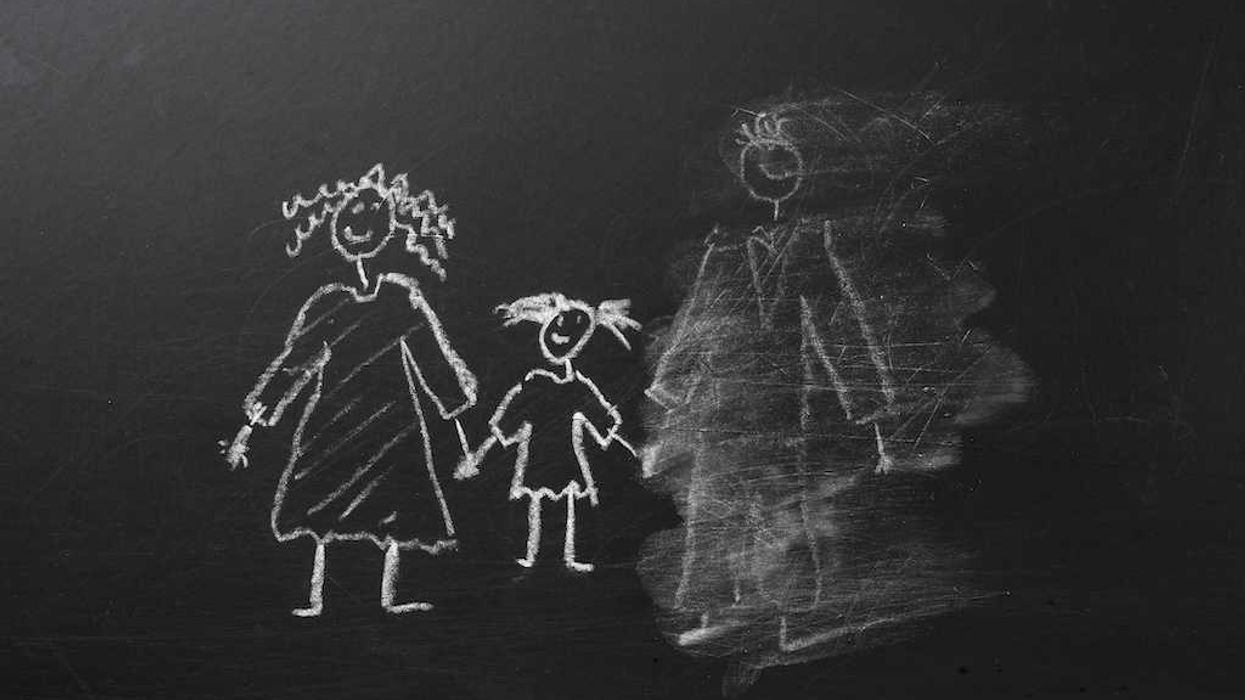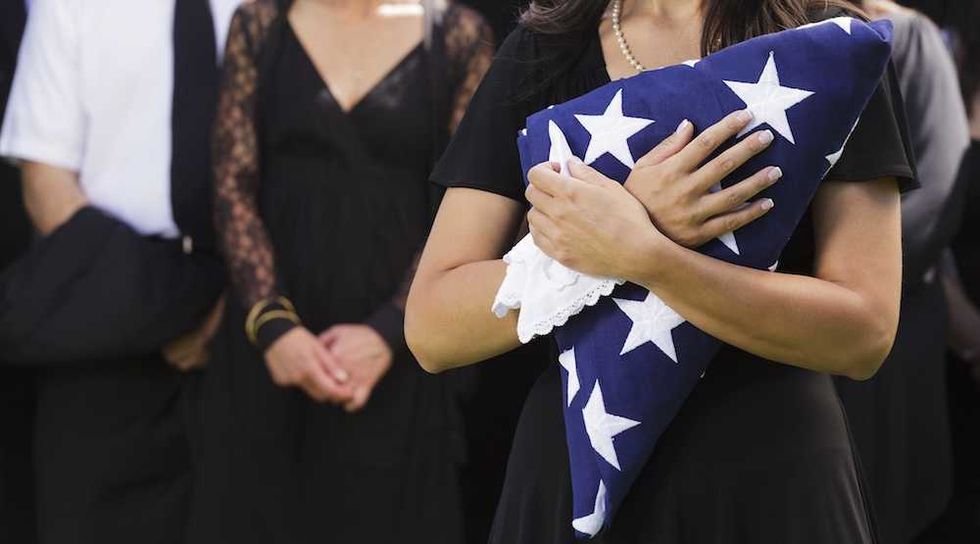
Day: November 23, 2025
c7d52730-3892-5adf-aace-9fc812eda633 • fnc • Fox News • fox-news/lifestyle/occasions/thanksgiving • fox-news/opinion
Christmas is gobbling up Thanksgiving, the uniquely American holiday
Retailers prioritize Christmas over Thanksgiving decorations because holiday shopping generates billions while gratitude traditions offer lower profits.
fcc3f4c2-2b2a-55ee-a980-b06432f18824 • fnc • Fox News • fox-news/fitness-and-wellbeing • fox-news/health
Ivanka Trump’s new water workout could promote healthy aging, expert says
Paddleboarding offers incredible health benefits, including core strength, balance training and stress relief. An expert explains why Ivanka Trump’s water sport works.
4a9d9417-58ff-58b0-a6b4-57c060a79260 • fnc • Fox News • fox-news/sports/ncaa-fb • fox-news/sports/ncaa/miami-hurricanes
Miami football staffer avoids disaster after Hurricanes player barrels over her
A staffer on the Miami Hurricanes football team was inches from disaster during the second quarter of the team’s win over the Virginia Tech Hokies.
27df0e0b-fb92-5356-b9d0-deec31d71b74 • fnc • Fox News • fox-news/sports/ncaa-fb • fox-news/sports/ncaa/oregon-ducks
Oregon’s Dan Lanning makes Ducks’ case for College Football Playoff after big win over USC
The Oregon Ducks improved their resume for the College Football Playoff and head coach Dan Lanning made the team’s case after their win over USC.
af6d43d4-d36a-590f-a454-0b0a59c50b36 • fnc • Fox News • fox-news/person/mohammed-bin-salman • fox-news/world/world-regions/saudi-arabia
Vindman’s call to release Trump–MBS transcript reopens old questions in US-Saudi relationship
Trump grants Saudi Arabia major non-NATO ally status as crown prince pledges nearly $1 trillion in U.S. investments, creating new defense partnerships.
fb4059c6-a32d-5663-9766-5e673e53a832 • fnc • Fox News • fox-news/sports/nfl • fox-news/sports/nfl/pittsburgh-steelers
Steelers’ Aaron Rodgers to miss game vs Bears over broken wrist
Pittsburgh Steelers head coach Mike Tomlin said Sunday that Aaron Rodgers will not play against the Chicago Bears due to a broken wrist.
26128148-f672-5bd5-a808-d2b72f9d952e • fnc • Fox News • fox-news/food-drink • fox-news/health/nutrition-and-fitness/diet-trends
Common food may boost heart health without changing your lifestyle
New research reveals mushrooms may boost heart health by reducing triglycerides and supporting blood sugar control for better overall health outcomes.
Conservatism • Conservative Review • Heritage Foundation • Nick Fuentes • Opinion & analysis • Tucker Carlson
The right must choose: Fight the real war, or cosplay revolution online


Is principled conservatism dead? And would that even be good?
Robert P. George’s resignation from the board of the Heritage Foundation last week suggests a deeper shift inside the conservative world. George is one of the most respected conservative intellectuals alive — a Princeton professor who built the James Madison Program and shaped a generation of natural-law scholarship. His departure, prompted by how Heritage President Kevin Roberts handled Tucker Carlson’s interview with Nick Fuentes, exposes a widening fracture on the right about what conservatism is and what it should defend.
The first lesson conservatives should recover: Reason and faith are not optional in the public square.
I have watched this tension escalate since what some have called Charlie Kirk’s “martyrdom.” Voices from what garden-variety conservatives call “the far right,” what liberals lump together as “the right,” and what Antifa brands “fascist” are pushing for influence inside the movement. Some insist these agitators are leftist plants sent to fracture the right. Others believe God allows the intentions of every heart to be revealed.
Whatever the explanation, the attacks now directed at George follow a predictable pattern: an “OK, Boomer” dismissal of a man who has spent his life defending the unborn, natural marriage, and the created order.
Full disclosure: When I was a graduate student studying natural law at Arizona State University, George took time to meet with me and guide my work. Later as a tenured professor, I became a fellow in the very program he founded. One of my own undergraduate professors — the great ethicist Jeffrie Murphy — said George’s work compelled him to rethink everything.
So-called far-right critics now claim George will debate and even co-author books with Cornel West, with his ties to Louis Farrakhan, but refuses to work with people “to his right.” The charge — absurd on its face — is that he is some kind of “controlled dissenter,” a token conservative tolerated by the Ivy League so long as he stays within its boundaries. From there, the speculation drifts into unfounded theories about motives and self-preservation.
George does not need me to defend him. His life’s work refutes these claims. He has never backed away from his convictions. He has never trimmed the truth to curry favor with elite institutions. He debates West because he believes reason still matters, because he believes truth can be argued in public, and because he believes even fierce disagreement does not require abandoning basic human dignity. He refuses to compromise an inch while treating his interlocutors as human beings.
That shouldn’t be so difficult to understand.
In fact, that’s the first lesson conservatives should recover: Reason and faith are not optional in the public square. They are the foundation for honest argument, and honest argument is the only way a free people can persuade and be persuaded. If we descend into conspiracy theorizing, rage, or tribal loyalty as our primary modes of engagement, we abandon the very tools that made conservatism coherent.
Here is George’s warning: Don’t become postmodernists. Don’t imitate the left’s racial essentialism or identity politics. Don’t throw out reason because some Enlightenment thinkers misused it. If you want to rethink every narrative you’ve heard, fine — do it with reason, not with the power-dialectic that dominates progressive thought.
But principles alone are not enough. Being principled does not mean being naïve. Conservatives once understood strategy and tactics — long-term goals paired with immediate steps that move us toward them. I believe the United States should acknowledge the kingship of Jesus Christ. Presidents from both parties once referred to America as a Christian nation. If that is true, then we must engage publicly, argue publicly, and fight publicly for that idea of ordered liberty.
That means getting into the trenches. It means refuting Marxism and atheism clearly and without apology. It means being innocent as doves and wise as serpents, fighting to win without surrendering either virtue.
RELATED: Tucker Carlson, Nick Fuentes, and the war for the conservative soul
 Photo by Zach D Roberts/NurPhoto via Getty Images
Photo by Zach D Roberts/NurPhoto via Getty Images
What we cannot become is principled losers. The enemy welcomes our gentlemanly retreats. The progressive movement wants more than policy wins; it wants to redefine the human person, the family, and the moral order itself. A party that endorses abortion at any point, supports the mutilation of healthy children, and treats scripture as hate speech leaves no moral ambiguity about which side a Christian or natural-law conservative should support.
Read George’s arguments against liberalism. Read his defense of natural law. If you disagree with him, he will debate you — he always has. But you can learn from him that a revival of natural law and natural theology is essential right now. That requires teaching the truths in Romans 1 and learning from Acts how to speak across cultures and ideologies.
We are in a spiritual war. The weapons are spiritual, but the fight is real. The stakes are real. The consequences are real.
It is far better to be fighting through the mud of Mordor than fat, complacent, and conquered in the Shire.
Why real Christianity terrifies the elites — and they’re right to worry

Much like gas-station sushi, David Brooks is hard to stomach at the best of times.
But his latest New York Times essay is the kind that makes you reach for the sick bag. He opens with the usual routine: an exasperated sigh, a long, self-important pause, and the unmistakable air of a man convinced he has cracked the cosmos — again.
A hidden faith saves no one, a timid faith shapes nothing, and a faith that folds under pressure is closer to cheap furniture than conviction.
He quotes a Czech priest, hints at deep wells of wisdom, and then meanders toward the real purpose of the piece: explaining, with mild exasperation, why Christians are once again disappointing him. This is nothing new. It’s a ritual at this point — a complaint that returns like spam you swore you unsubscribed from.
To be fair, Brooks isn’t stupid. He knows how to spin a story, how to climb onto the moral high ground without looking like he’s climbing, and how to crown himself the lone voice of reason in an age he insists is losing its mind.
But there is no missing the tone that hangs over almost every line he writes about believing Americans: a thin mist of condescension, settling somewhere between pastoral concern and a parent-teacher conference. He talks about everyday Christians the way a pretentious barista talks about someone ordering regular coffee — uncultured, embarrassing, and in need of enlightenment. And the tone, more than any point he makes, gives him away instantly.
Brooks claims to fear “rigid” or “pharisaical” Christianity. Yet the only certainties that radiate from his essay are his own. He divides the world into two armies — Christian nationalists on one side and “exhausted” secular humanists on the other — and then steps forward as the lone oracle who claims to see a path out of the fog.
Christians who vote for borders, who cherish the nation that shaped their churches, or who think culture is worth defending are waved off with his familiar, weary flick of the wrist. They’re told they practice a “debauched” version of the faith.
No evidence needed. Brooks’ opinion is treated as its own proof.
His description of these believers always follows the same script. They are angry, dangerous, and obsessed with power. They clutch their creed like a makeshift weapon, ready to wallop anyone who wanders too close.
In his telling, they never act from devotion, duty, or gratitude. They never look around their communities and see an America they love slipping away. They never mourn the millions taken before they drew a breath, the cracking of our shared foundation, or the slow burial of the sacred.
Instead, Brooks tells us they operate from “threat more than hope,” as if the country’s cultural decay were some far-fetched tale told for effect, rather than something families watch unfold every day in their schools, in their cities, and on their screens.
Brooks then pivots to his preferred theological register: the poetry of longing. He praises yearning, doubts, desires, and pilgrimages — all worthwhile themes.
But he uses them the way an interior decorator uses throw pillows: scattered for mood, never for structure. His spiritual reflections float past in soft, airy phrases that never touch the ground. This isn’t the faith of the Gospels, anchored in sacrifice and truth. It’s faith as fragrance — atomized cosmetic, evaporating faster than one of his metaphors. It asks nothing, risks nothing, and confronts nothing, which may be why Brooks finds it so comforting.
RELATED: Exposing the great lie about ‘MAGA Christianity’ — and the truth elites hate
 jokerpro/iStock/Getty Images Plus
jokerpro/iStock/Getty Images Plus
Throughout his essay, Brooks holds up a small circle of “wise people” as models of the faith America needs — Tomas Halík, Rowan Williams, and a handful of theologians who speak in clichés and move through the world like contemplative shadows. Their calm inspires him. Their pluralism delights him. Brooks treats their quietism as the apex of Christian maturity, as if the holiest life is lived at arm’s length, murmuring about mystery while the roof caves in.
What he never admits is what these figures actually represent: a brand of Christianity that thrives in seminar rooms, academic conferences, and anemic interfaith panels — spaces far removed from the daily battles most Christians face. Halík writes beautifully about longing. Rowan Williams writes elegantly about humility. But neither man spent his life in the trenches defending children from ideological capture in schools, or standing up to governments intent on shredding the family, or speaking plainly about sin in a culture that now calls sin a civil right.
Brooks misreads their vocation as the universal Christian posture when it is, at best, one posture among many.
The heart of the essay is its barely disguised contempt for ordinary Christians who believe their faith should shape the societies they inhabit. This is the point he never states outright but gestures toward with every paragraph.
Faith, to Brooks, is primarily personal, private, and utterly toothless. The moment it concerns the fate of a nation or the moral trajectory of a culture, he calls it nationalism. If a Christian speaks of stricter immigration policies, he hears xenophobia. If a parent protects his child from the cultural free-for-all, he calls it regression.
Brooks leans heavily on the aforementioned Czech priest and philosopher, Tomáš Halík, as if Halík were handing him a permission slip for a diluted Christianity. Halík writes movingly about interior struggle and authentic witness, ideas rooted in his years serving an underground church under communist rule.
But Brooks treats Halík’s reflections on the inner life as a blanket command for Christians to withdraw from the outer one. Halík speaks of sincerity; Brooks hears surrender. Halík points to the vast, ungraspable side of faith; Brooks converts it into a polite memo urging believers to stay in their lane.
And so Brooks gets the entire lesson backward. Halík survived a regime that tried to erase Christianity from public life. He never argued for Christians to silence themselves or retreat from cultural battles. Yet Brooks uses him as cover to criticize anyone who won’t float along with the cultural current.
What Brooks never admits is that what he calls “Christian nationalism” is not the fringe menace he imagines. For many believers, it is simply the instinct to guard the faith that built their communities. It isn’t a hunger for domination, but a love for the inheritance passed down to them. It isn’t outright hostility toward outsiders but gratitude for the civilization that formed them.
Brooks conveniently sidesteps all of this and builds a caricature he can berate, warning of a “creeping fascism” that lives entirely in his own mind.
The self-anointed sage wants Christians to trade their armor for aroma, to swap vigilance for vague platitudes, and to follow his favorite tastemakers into a future where faith survives only behind closed doors.
But Christians know better. A hidden faith saves no one, a timid faith shapes nothing, and a faith that folds under pressure is closer to cheap furniture than conviction. Brooks will disagree, naturally. He always does.
As so many times before, the smug sexagenarian takes a swing at American Christians. And once again, he misses the target by a mile.
Blaze Media • Family • Fathers • Forgiveness • Grace • Opinion & analysis
When fathers fall, grace asks more of us

Families gather for all sorts of reasons — Thanksgiving, Christmas, weddings, funerals. And sometimes that’s when the fireworks start. There’s an old joke that any family gathering where the cops aren’t called is a successful one. Beneath the laughter sits a truth most families know. When people with long memories sit at the same table, old hurts rise right alongside the cranberry sauce.
Sin fractured families long before politics did. It divides hearts, poisons conversations, and leaves scars that last for generations. Every family bears some of that damage, and nowhere does the fracture cut deeper than between fathers and children.
Every father fails in some way, and those failures bring deep sadness. Grief isn’t a sin. Derision and resentment are.
A caller once told me about his alcoholic father, who had been abusive for years. The caller was 52, yet when he talked about being around his father, his voice broke. “Every time I’m around him,” he said, “I feel like I’m 9 years old.” The man’s father had fallen and now needed care, but the wounds had not healed. His wife and children were watching, waiting to see what he would do. His father was still drinking, still choosing the same path.
I told him, “You’ve made sure your father has food and care, but you’re not required to be subservient. Your family counts on you. Your father continues to make destructive choices, and you can’t change that. Your family’s well-being cannot come at the expense of his demands. He may not make it — but you have to.”
That conversation stayed with me. It reminded me how hard it is to see a parent’s weakness and not respond in anger or disgust or fear. We want to fix it, mock it, punish it, or walk away. Yet scripture gives us a different picture of what honor can look like when a father’s failings are laid bare.
After the flood, Noah planted a vineyard, drank too much, and passed out naked in his tent. His son Ham saw him exposed and mocked his shame. His brothers, Shem and Japheth, took a blanket, walked backward, and covered him.
It wasn’t easy. I imagine Shem and Japheth groaning at the sight of their father — maybe with tears in their eyes. Some fathers decline; some abandon; but every father fails in some way, and those failures bring deep sadness. Grief isn’t a sin. Derision and resentment are.
What do we do when we see our fathers in their weakness? When bitterness stirs, when old wounds reopen, when the urge to expose feels justified? The man who once loomed large now looks small. He wielded power over a child but appears diminished, not just by age but by the perspective that comes with time. That truth can stir anger or sorrow — or offer release.
In the garden, when Adam and Eve sinned, they saw their own nakedness for the first time and tried to cover it with leaves. The first act of grace in scripture was God covering their shame with garments He made Himself. Blood was shed to make those coverings — a quiet foreshadowing of what grace would one day cost.
That moment wasn’t about modesty. It was mercy. God did for them what they could not do for themselves. He covered their shame. From that moment on, grace has always moved toward covering — not humiliating.
At the cross, the story reached its fulfillment. The Son of God allowed Himself to be stripped bare. He bore the nakedness that belonged to us. What began in Eden with God covering human shame ended on Calvary with Christ carrying it. We were clothed in mercy because the innocent one was exposed.
Jesus told another story about a father and his sons. One rebelled and returned in disgrace. The other stayed but grew proud and resentful. Both disrespected their father — one through sin, the other through scorn. Yet the father ran to meet the prodigal and later went out to plead with the older son. He carried the same heart as Shem and Japheth. He covered shame, and even resentment, with grace.
RELATED: What we lose when we rush past pain
 O2O Creative via iStock/Getty Images
O2O Creative via iStock/Getty Images
Caregiving brings old wounds to the surface fast, and the holidays push them even closer to the edge. Many caregivers know this. They spend their days covering weakness — with blankets, patience, or prayer. They honor parents who can’t return the favor, who may not even recognize them anymore. Sometimes they protect in spite of, not because of. Some fathers, like that caller’s, won’t change. But we can.
At some holiday tables, people say, “Please pass the turkey,” when what they really want to say is, “Why can’t you?” or “Why didn’t you?” Those moments expose the gap between what we feel and what we’re called to.
Some fathers failed in ways that make reconciliation impossible. Honoring them does not mean returning to harm, pretending nothing happened, or carrying the weight of their failures. Their shame is not ours to bear. But we’re also not given permission to parade it.
So we honor the office, tell the truth, and set safe boundaries. We refuse to be shaped by their sin and trust God to deal with what belongs to Him. And because grace covers us, we can choose dignity over bitterness — even when fathers fall.
search
categories
Archives
navigation
Recent posts
- Gavin Newsom Laughs Off Potential Face-Off With Kamala In 2028: ‘That’s Fate’ If It Happens February 23, 2026
- Trump Says Netflix Should Fire ‘Racist, Trump Deranged’ Susan Rice February 23, 2026
- Americans Asked To ‘Shelter In Place’ As Cartel-Related Violence Spills Into Mexican Tourist Hubs February 23, 2026
- Chaos Erupts In Mexico After Cartel Boss ‘El Mencho’ Killed By Special Forces February 23, 2026
- First Snow Arrives With Blizzard Set To Drop Feet Of Snow On Northeast February 23, 2026
- Chronological Snobs and the Founding Fathers February 23, 2026
- Remembering Bill Mazeroski and Baseball’s Biggest Home Run February 23, 2026






